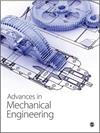The architecture evolution of intelligent factory logistics digital twin from planning, implement to operation
IF 1.9
4区 工程技术
Q3 ENGINEERING, MECHANICAL
引用次数: 0
Abstract
Digital twin is widely studied in the context of industry 4.0. It is expected that the application of digital twin in intelligent factory logistics can enrich connectivity, proactivity, and agility of the logistics. Architecture is one of the significant factors impacting on the selection of appropriate enabling technologies for constructing the intelligent logistics. This paper proposes a digital twin architecture for intelligent factory logistics. It mainly includes a physical layer, two cyber layers, and an interface layer. The architecture is in compliance with the architecture of the Human-Cyber-Physical System (HCPS). Moreover, the evolution of the architecture is elaborated during the planning, implement, and operation stages when construction of the digital twin. At the initial stage, human should participate in the decision-making process frequently to determine whether the results given by digital twin need to be changed. However, the data-driven model based digital twin will continually learn the human’s changing behaviors, thus constantly updating itself. It can evolution from digital model, digital shadow to digital twin with the continuous construction process. The ultimate digital twin should be able to assess operational key performance indicators (KPIs) and handle dynamic events.智能工厂物流数字孪生从规划、实施到运行的架构演变
数字孪生在工业4.0的背景下被广泛研究。数字孪生在智能工厂物流中的应用可以丰富物流的连通性、主动性和敏捷性。体系结构是影响构建智能物流选择合适的使能技术的重要因素之一。本文提出了一种智能工厂物流的数字孪生体系结构。它主要包括一个物理层、两个网络层和一个接口层。该体系结构符合HCPS (Human-Cyber-Physical System)体系结构。此外,在构建数字孪生时,在规划、实施和操作阶段详细阐述了体系结构的演变。在初始阶段,人应该经常参与决策过程,以确定数字孪生给出的结果是否需要改变。然而,基于数据驱动模型的数字孪生将不断学习人类不断变化的行为,从而不断更新自己。它可以在不断构建的过程中从数字模型、数字阴影到数字孪生演变。最终的数字孪生应该能够评估操作关键性能指标(kpi)并处理动态事件。
本文章由计算机程序翻译,如有差异,请以英文原文为准。
求助全文
约1分钟内获得全文
求助全文
来源期刊

Advances in Mechanical Engineering
工程技术-机械工程
CiteScore
3.60
自引率
4.80%
发文量
353
审稿时长
6-12 weeks
期刊介绍:
Advances in Mechanical Engineering (AIME) is a JCR Ranked, peer-reviewed, open access journal which publishes a wide range of original research and review articles. The journal Editorial Board welcomes manuscripts in both fundamental and applied research areas, and encourages submissions which contribute novel and innovative insights to the field of mechanical engineering
 求助内容:
求助内容: 应助结果提醒方式:
应助结果提醒方式:


